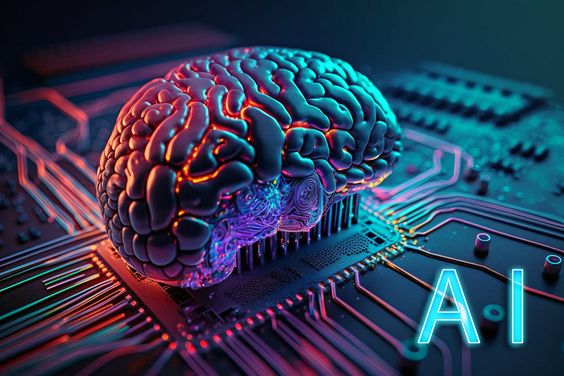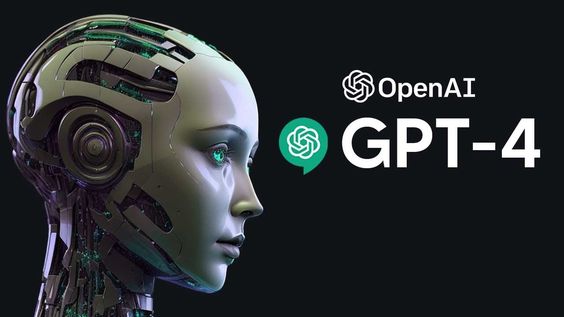Exploring the Role of AI Technology in Healthcare Improvement
Artificial Intelligence (AI) has emerged as a game-changer in the healthcare industry, revolutionizing the way we approach diagnosis, treatment, and patient care. With its ability to analyze vast amounts of data and identify patterns, AI is transforming healthcare delivery, promising improved efficiency, accuracy, and outcomes. This article explores the transformative role of AI technology in healthcare, highlighting its potential to address challenges and drive innovation in the quest for better health outcomes.
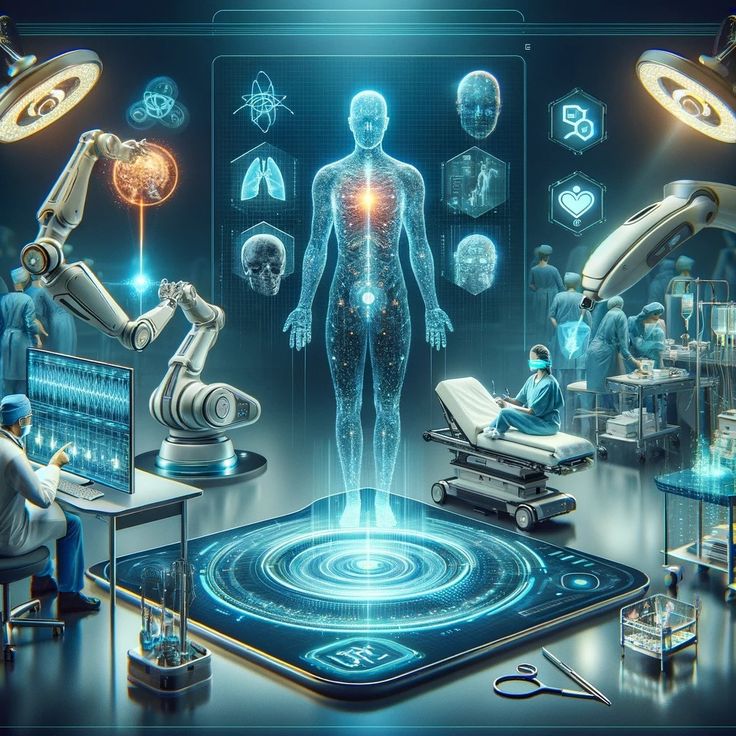
Disease Diagnosis
Using artificial intelligence for disease diagnosis:
The integration of artificial intelligence (AI) in disease diagnosis has revolutionized the healthcare landscape by providing clinicians with powerful tools to accurately identify and classify various medical conditions. AI algorithms, particularly those based on machine learning techniques, analyze vast amounts of patient data, including medical images, genetic information, and clinical notes, to assist in the diagnostic process. For instance, in radiology, AI-powered image analysis systems can rapidly interpret medical scans such as X-rays, MRIs, and CT scans, aiding radiologists in detecting abnormalities and lesions with high precision. Similarly, AI-driven diagnostic tools are being deployed in pathology to analyze tissue samples and identify cancerous cells, leading to earlier detection and improved treatment outcomes.
Advantages and potential of AI diagnostic systems:
The utilization of AI diagnostic systems offers several advantages over traditional diagnostic methods. Firstly, AI algorithms can process and analyze medical data at a speed and scale that surpasses human capabilities, allowing for quicker and more accurate diagnoses. This not only reduces the time required for diagnosis but also enhances the efficiency of healthcare delivery, particularly in settings where timely interventions are critical.
Additionally, AI diagnostic systems have the potential to improve diagnostic accuracy by minimizing human errors and biases. By continuously learning from new data inputs and refining their algorithms, AI systems can adapt and improve over time, leading to increasingly accurate diagnoses. Moreover, AI-driven diagnostic tools have the potential to address healthcare disparities by providing access to quality diagnostic services in underserved areas where healthcare resources are limited.
Overall, the integration of AI technology in disease diagnosis holds significant promise for enhancing the accuracy, efficiency, and accessibility of healthcare services. As AI algorithms continue to evolve and improve, they are poised to play a pivotal role in transforming diagnostic processes and improving patient outcomes across a wide range of medical specialties.
Drug Development
Applications of artificial intelligence in pharmaceutical research and development:
Artificial intelligence (AI) has emerged as a valuable tool in pharmaceutical research and development, revolutionizing the way new drugs are discovered, developed, and brought to market. AI-driven platforms are employed across various stages of the drug development pipeline, from target identification and lead optimization to preclinical testing and clinical trials. For example, AI algorithms can analyze vast amounts of biological and chemical data to identify potential drug targets, predict drug-drug interactions, and optimize molecular structures for enhanced efficacy and safety. Moreover, AI-powered virtual screening platforms enable researchers to rapidly screen large compound libraries and identify promising drug candidates with the desired pharmacological properties. Additionally, AI-driven predictive models facilitate the selection of patient populations for clinical trials, thereby improving trial design and increasing the likelihood of successful outcomes.
How AI enhances the drug development process and reduces trial times:
The integration of AI technology in the drug development process offers several advantages that contribute to the acceleration of drug discovery and development timelines. Firstly, AI-driven drug discovery platforms enable researchers to explore a broader chemical space and identify novel drug candidates more efficiently than traditional methods. By leveraging machine learning algorithms, researchers can analyze complex biological datasets and identify patterns that may lead to the discovery of new therapeutic targets and drug mechanisms. Moreover, AI-powered predictive models can streamline the selection of lead compounds for further development, reducing the time and resources required for preclinical testing. Additionally, AI algorithms can optimize clinical trial design by analyzing patient data and predicting treatment responses, thereby facilitating more efficient and cost-effective trials. Overall, the integration of AI technology in drug development holds tremendous promise for accelerating the pace of innovation, reducing development costs, and ultimately bringing safe and effective treatments to patients more quickly.

Healthcare Data Management
Utilizing AI for healthcare data management and analysis:
Healthcare data management involves the collection, storage, analysis, and utilization of vast amounts of patient-related information, including electronic health records (EHRs), medical imaging data, genomic data, and administrative data. Artificial intelligence (AI) has emerged as a powerful tool for healthcare data management, offering advanced capabilities for data processing, analysis, and decision-making. AI algorithms, particularly those based on machine learning techniques, can analyze structured and unstructured healthcare data to extract valuable insights, identify patterns, and support clinical decision-making. For example, AI-powered predictive analytics models can analyze patient data to predict disease outcomes, identify high-risk patients, and personalize treatment plans. Similarly, AI-driven natural language processing (NLP) tools can extract valuable information from clinical notes, research articles, and other textual sources to facilitate data interpretation and knowledge discovery.
Benefits of automating healthcare data management processes:
The automation of healthcare data management processes through AI technologies offers several benefits for healthcare organizations, clinicians, and patients alike. Firstly, AI-driven automation streamlines data collection, entry, and processing tasks, reducing the burden on healthcare staff and improving operational efficiency. By automating repetitive tasks such as data entry and coding, AI systems can free up valuable time for clinicians to focus on patient care and clinical decision-making. Moreover, AI-powered data management systems can enhance data quality and integrity by minimizing errors and inconsistencies commonly associated with manual data entry and processing. Additionally, AI algorithms can identify anomalies, trends, and insights in healthcare data that may go unnoticed by human operators, enabling more proactive and data-driven decision-making.
Patient Care
Applications of artificial intelligence in improving patient care:
Artificial intelligence (AI) has revolutionized patient care by offering innovative solutions to enhance the quality, efficiency, and personalization of healthcare services. AI applications in patient care span a wide range of areas, including diagnosis, treatment planning, monitoring, and patient engagement. For instance, AI-powered clinical decision support systems analyze patient data, medical literature, and best practice guidelines to assist clinicians in making evidence-based treatment decisions. Similarly, AI-driven predictive analytics models can forecast disease progression, identify patients at high risk of adverse events, and recommend personalized interventions to improve health outcomes. Moreover, AI-enabled virtual health assistants and chatbots provide patients with round-the-clock access to healthcare information, support self-management of chronic conditions, and facilitate remote consultations with healthcare providers.
How AI optimizes care schedules and predicts treatment outcomes:
AI technology plays a crucial role in optimizing care schedules and predicting treatment outcomes by leveraging patient data and clinical insights to inform care delivery decisions. AI-powered scheduling algorithms can dynamically adjust appointment schedules based on patient preferences, provider availability, and clinical priorities, minimizing wait times and maximizing resource utilization. Furthermore, AI-driven predictive models analyze patient data, such as demographics, medical history, and treatment response, to anticipate treatment outcomes and identify personalized care plans. By integrating predictive analytics into clinical workflows, healthcare providers can proactively identify patients who may benefit from specific interventions, monitor treatment response in real-time, and adjust care plans accordingly to optimize outcomes.

Advantages and Challenges
Advantages of using artificial intelligence in healthcare:
Artificial intelligence (AI) offers numerous advantages in healthcare, revolutionizing the delivery of patient care and streamlining clinical workflows. One significant advantage is the ability of AI algorithms to analyze large volumes of complex healthcare data quickly and accurately, enabling more precise diagnoses and personalized treatment plans. AI-driven clinical decision support systems can assist healthcare providers in making evidence-based decisions, reducing diagnostic errors, and improving patient outcomes. Moreover, AI applications in healthcare improve operational efficiency by automating repetitive tasks, optimizing resource allocation, and enhancing the overall quality of care delivery. Additionally, AI-powered predictive analytics models enable early detection of diseases, identification of high-risk patients, and proactive interventions to prevent adverse events, ultimately leading to improved patient outcomes and reduced healthcare costs.
Challenges and issues to address when implementing AI in this field:
Despite its potential benefits, the implementation of artificial intelligence in healthcare presents several challenges and issues that need to be addressed. One major challenge is the lack of interoperability and standardization of healthcare data, which hinders the seamless integration of AI technologies into existing clinical systems and workflows. Additionally, concerns about data privacy, security, and patient confidentiality pose significant challenges to the widespread adoption of AI in healthcare. Ensuring the ethical use of AI algorithms and addressing biases in AI-driven decision-making processes are also critical issues that require attention. Moreover, healthcare organizations must invest in staff training and education to ensure that healthcare providers are equipped with the necessary skills and knowledge to effectively utilize AI technologies in clinical practice. Furthermore, regulatory and legal considerations, such as liability and accountability for AI-driven decisions, require careful consideration to establish clear guidelines and regulations for the responsible deployment of AI in healthcare settings.
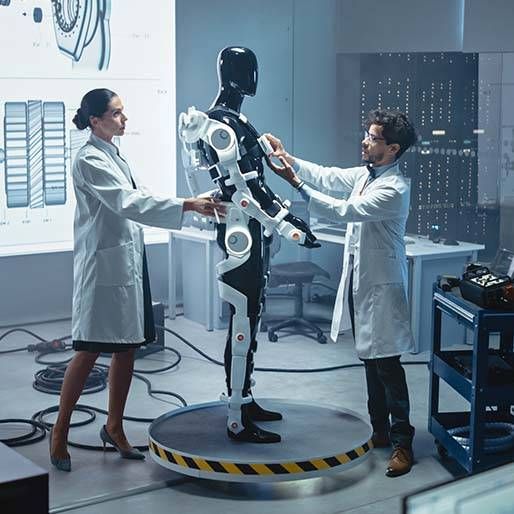
Potential and Prospects
Potential of artificial intelligence in enhancing healthcare service quality:
The potential of artificial intelligence (AI) to enhance healthcare service quality is vast and multifaceted. AI-driven technologies have the capability to improve diagnostic accuracy, optimize treatment plans, and streamline clinical workflows, ultimately leading to better patient outcomes and improved healthcare experiences. For example, AI algorithms can analyze medical images, such as X-rays and MRIs, with remarkable precision, aiding clinicians in detecting and diagnosing diseases at an early stage. Additionally, AI-powered clinical decision support systems provide healthcare providers with evidence-based recommendations, helping to standardize care practices and reduce variability in treatment outcomes. Moreover, AI applications in predictive analytics enable healthcare organizations to identify at-risk patient populations, anticipate healthcare needs, and allocate resources more effectively, thereby improving population health management and preventive care efforts.
Prospects of using AI to reduce healthcare costs and improve treatment outcomes:
The prospects of using AI to reduce healthcare costs and improve treatment outcomes are promising, offering opportunities for greater efficiency, effectiveness, and value in healthcare delivery. By automating routine tasks, streamlining administrative processes, and optimizing resource allocation, AI technologies have the potential to drive down operational costs and improve the overall efficiency of healthcare organizations. For example, AI-powered predictive analytics models can identify opportunities for cost savings, such as reducing hospital readmissions, avoiding unnecessary procedures, and optimizing medication management. Additionally, AI-driven personalized medicine approaches enable healthcare providers to tailor treatments to individual patient characteristics, improving treatment efficacy and reducing the likelihood of adverse events. Furthermore, AI applications in remote patient monitoring and telemedicine enable more proactive and timely interventions, reducing the need for costly hospitalizations and emergency room visits.
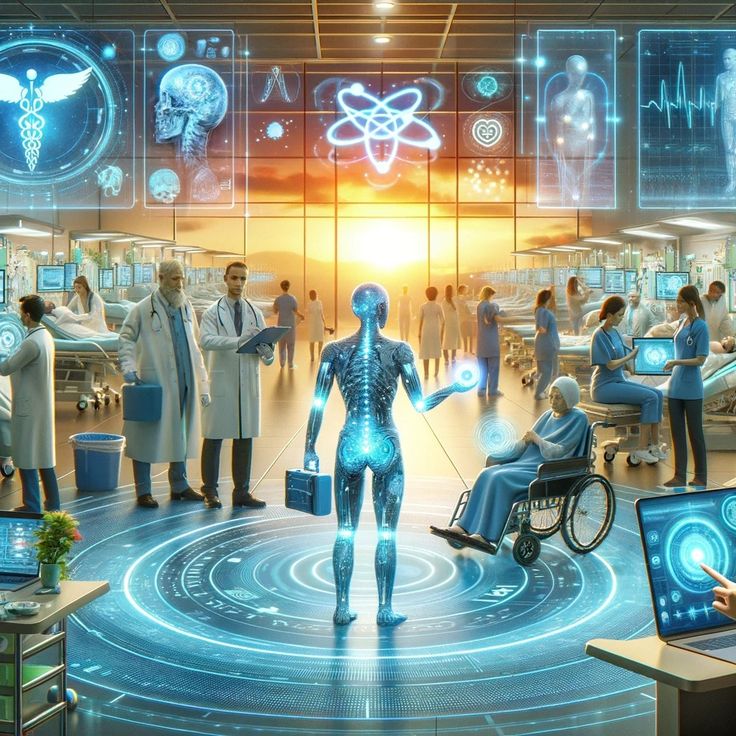
Conclusion
Artificial intelligence (AI) has emerged as a transformative force in healthcare, offering innovative solutions to improve patient care, enhance operational efficiency, and drive healthcare innovation. Throughout this article, we have explored the diverse applications of AI in healthcare improvement, spanning disease diagnosis, drug development, patient care, and healthcare data management. From assisting clinicians in making accurate diagnoses and treatment decisions to optimizing care schedules and predicting treatment outcomes, AI technologies are reshaping the healthcare landscape and revolutionizing the delivery of healthcare services.
The importance of continued research and development of AI in healthcare cannot be overstated. As AI technologies continue to evolve and mature, there is tremendous potential to further enhance their capabilities and address existing challenges and limitations. Continued investment in AI research and development is essential to advance the state-of-the-art in healthcare AI, improve the accuracy and reliability of AI-driven diagnostic and treatment tools, and address ethical, regulatory, and privacy concerns. Moreover, ongoing collaboration between healthcare stakeholders, policymakers, and technology developers is crucial to ensure that AI technologies are deployed responsibly and ethically, with a focus on maximizing patient benefits and minimizing risks.
In conclusion, the applications of artificial intelligence in healthcare improvement hold immense promise for transforming healthcare delivery and improving patient outcomes. By leveraging the power of AI to enhance diagnostic accuracy, optimize treatment plans, and streamline clinical workflows, we can unlock new opportunities to deliver personalized, evidence-based care and improve the overall quality, efficiency, and accessibility of healthcare services. However, realizing the full potential of AI in healthcare requires a concerted effort to invest in research and development, address challenges and limitations, and foster collaboration across the healthcare ecosystem. With continued innovation and investment, AI has the potential to revolutionize healthcare delivery and improve the lives of patients around the world.


